Raising Chickens for Eggs: Easy Tips for Beginners
- March 5, 2024
- 6 comment
Raising chickens for eggs has been one of the most rewarding experiences of my homesteading journey. It’s not just about the fresh eggs every morning; it’s about connecting with nature, understanding the cycle of life, and contributing to a sustainable lifestyle.

Through trial and error, research, and hands-on experience, I’ve distilled my knowledge into an essential guide for anyone looking to embark on this fulfilling adventure. Here are the eight pivotal steps to success in egg farming, based on my personal experience and comprehensive research.
List of Ultimate Guide to Raising Chickens for Eggs:
- Choosing the Right Breed
- Setting Up the Coop
- Feeding for Optimal Health and Egg Production
- Implementing a Lighting Schedule
- Regular Health Checks and Parasite Control
- Egg Collection and Storage
- Managing the Flock Dynamics
- Sustainable Practices
Understanding the Basic on How to Raise Chickens for Eggs
Raising chickens for eggs is a rewarding endeavor that begins with selecting the right breed for your climate and egg production goals, setting up a secure and comfortable coop, and providing a balanced diet rich in proteins and calcium.
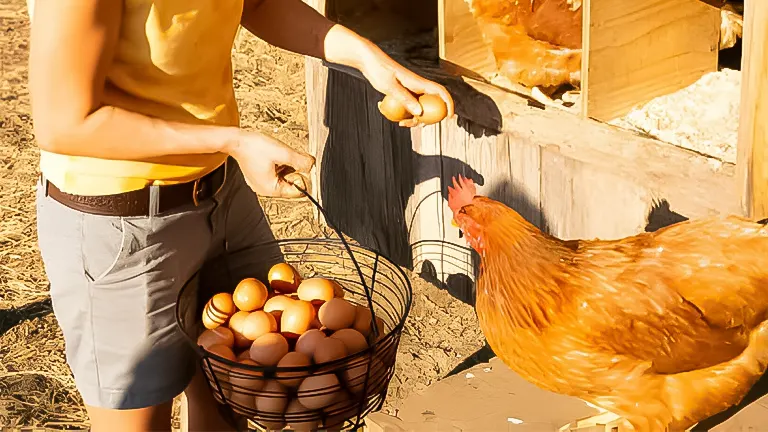
Egg-laying hens also require consistent light exposure to maintain their laying cycle, making artificial lighting a necessity in shorter daylight months. Regular health checks, parasite control, and maintaining a clean living environment are crucial to prevent diseases and ensure a steady supply of eggs.
Understanding the natural behaviors and social structure of chickens can further enhance their well-being and productivity. Whether you’re an urban homesteader or have ample countryside space, mastering these basics is the first step towards a successful and fulfilling experience in raising chickens for eggs.
8 Steps For Raising Chickens for Eggs Guidelines
Step 1: Choosing the Right Breed
Selecting the appropriate breed is crucial. Some breeds, like Leghorns, are prolific egg layers, while others, such as Orrington’s, are more docile and better suited for colder climates.
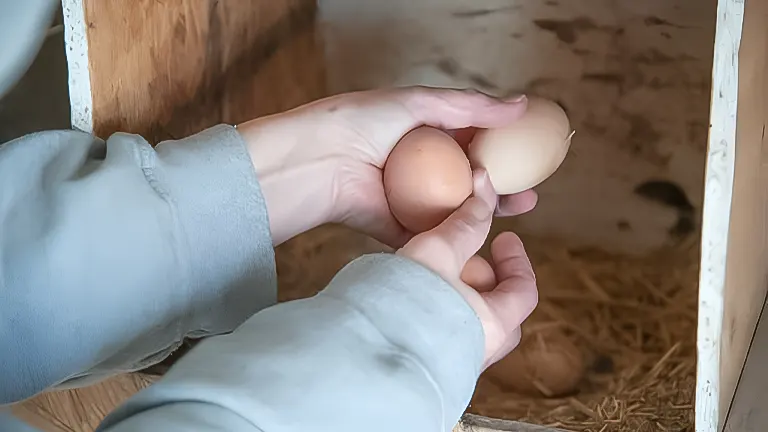
My experience has taught me that a mix of breeds can provide a balance between egg production and a harmonious coop.
Step 2: Setting Up the Coop
Your chickens’ home should be safe, spacious, and comfortable. A good rule of thumb is about 3-4 square feet per chicken inside the coop and 10 square feet per chicken in the run.

Ventilation, predator protection, and ease of cleaning are key factors to consider. I learned the hard way that cutting corners on the coop leads to problems down the line.
Step 3: Feeding for Optimal Health and Egg Production
Chickens need a balanced diet to lay eggs consistently. Layer feed, rich in calcium and protein, is essential once they reach laying age.

Supplementing their diet with kitchen scraps and allowing them to forage can enhance egg quality. My flock’s egg production improved noticeably when I optimized their diet.
Step 4: Implementing a Lighting Schedule
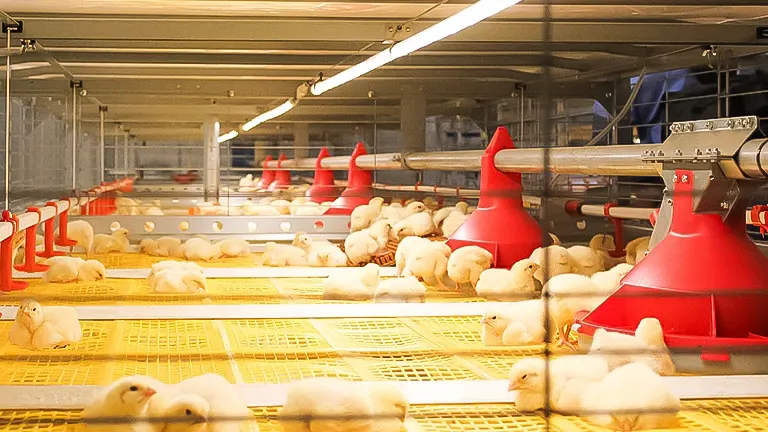
Egg production is linked to the amount of daylight. To maintain steady egg production, especially during winter, providing supplemental light to simulate 14-16 hours of daylight can be beneficial. However, it’s vital to balance this with natural rest periods to avoid overtaxing the hens.
Step 5: Regular Health Checks and Parasite Control
Maintaining a clean coop and conducting regular health inspections are non-negotiable. External parasites like mites and internal ones such as worms can wreak havoc.
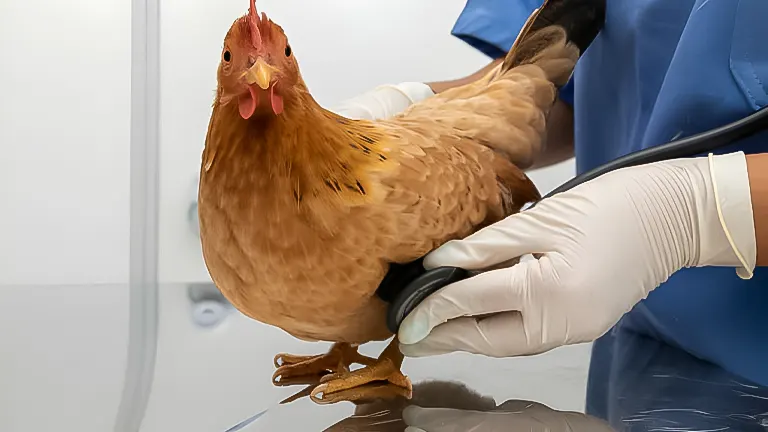
I’ve found that natural preventatives like diatomaceous earth and apple cider vinegar in their water work wonders, but severe infestations may require medical treatment.
Step 6: Egg Collection and Storage
Collecting eggs daily reduces the risk of breakage and ensures freshness. Storing eggs at a consistent, cool temperature prolongs their shelf life.
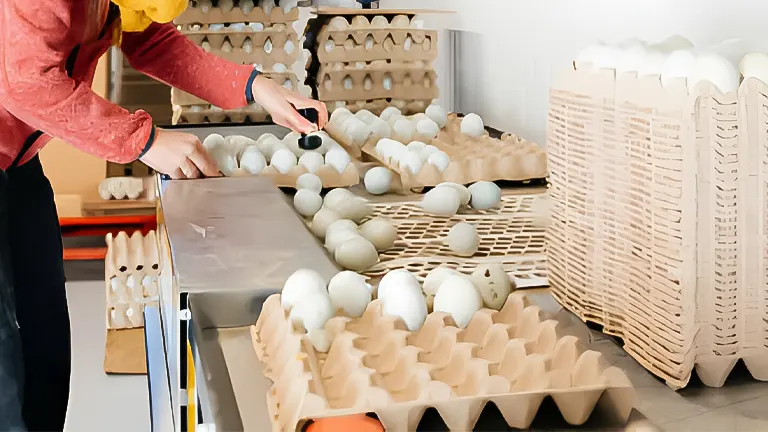
I was surprised to learn that unwashed eggs can be stored at room temperature for several weeks due to their natural protective coating.
Step 7: Managing the Flock Dynamics
Chickens have a social hierarchy known as the “pecking order.” Introducing new birds requires careful management to minimize stress and aggression.
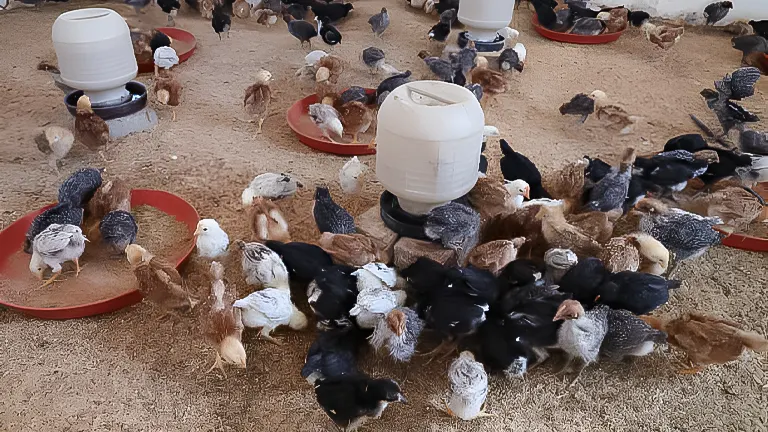
My approach has been to introduce new chickens gradually, in a neutral space, to avoid upheaval.
Step 8: Sustainable Practices
Incorporating sustainable practices, like composting chicken manure for garden fertilizer, not only benefits your garden but also reduces waste.
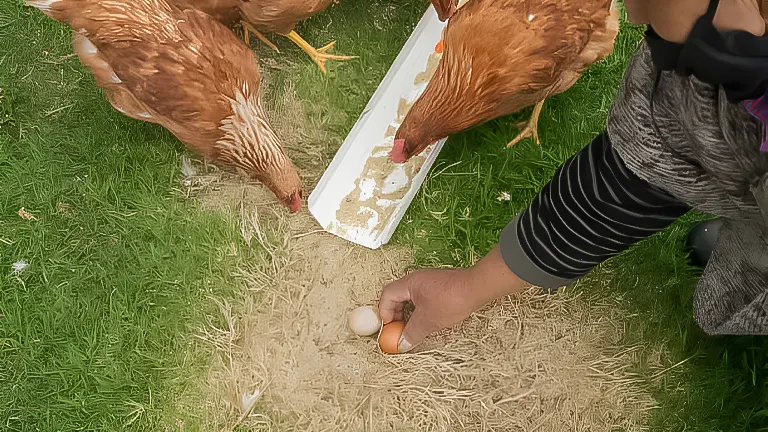
My garden has never been more fertile since I started composting manure, and it’s an excellent way to close the loop on your homesteading cycle.
Additional Tips for Raising Chickens for Eggs
- Provide Enrichment and Reduce Stress: Chickens are curious creatures that benefit from environmental enrichment. Adding elements like perches, dust baths, and safe foraging areas can keep your flock engaged, happy, and healthy. Stress can significantly reduce egg production, so maintaining a calm and safe environment is crucial. Practices such as keeping predators away, minimizing loud noises, and avoiding frequent disruptions can help in reducing stress levels among your chickens.
- Implement a Consistent Health Monitoring Routine: Regular health checks are essential for preventing and quickly addressing any issues that could impact egg production. Look for signs of illness or distress daily, such as changes in eating habits, lethargy, or abnormal droppings. Keeping a close eye on their health can lead to early detection of problems, making treatment more straightforward and less stressful for both you and your chickens.
- 3Optimize Nutrition with Seasonal Adjustments: While a high-quality layer feed forms the cornerstone of your chickens’ diet, their nutritional needs can change with the seasons. In colder months, adding more grains can help them generate body heat, while in the warmer months, ensuring they have access to plenty of fresh water and lighter feeds can help maintain their health and egg production. Tailoring your feeding strategy to the time of year can promote optimal health and consistent egg laying.
Related Articles:
- Best Bedding For Chickens
- Best Safe Chicken Coop Heater
- 8×8 Chicken Coop Plans
- Turning a Shed Into a Chicken Coop
- How to Make a Chicken Coop Out of Pallets
- Best Sand for Chicken Coop
- How To Insulate a Chicken Coop
- How To Heat a Chicken Coop
- How To Keep Water from Freezing in Chicken Coop
- How to Build a Chicken Coop
- How To Build Chicken Nesting Boxes
- How to Raise Happy and Healthy Chickens in Your Backyard
- When Can Chicks Go Outside? Timing and Tips for a Smooth Transition
- 12 Reasons why Ducks are Better than Chickens
- Best Automatic Chicken Coop Doors 2024: Expert Reviews & Buyer’s Guide
- Best Fans for Chicken Coop 2024: Effective Cooling Solutions Reviewed
Final Conclusion
Raising chickens for eggs is a multifaceted endeavor that requires commitment, knowledge, and a willingness to learn from mistakes. The rewards, however, far outweigh the challenges. Fresh eggs, a deeper connection to your food, and the joy of watching your flock are just a few of the benefits. Whether you’re a seasoned farmer or a novice, the journey of raising chickens is continuously enriching and full of surprises.
Frequently Asked Questions
- What age do chickens start laying eggs?
Chickens typically start laying eggs between 5 to 6 months of age, but this can vary depending on the breed. Some breeds, like the Leghorn, may start earlier, while heavier breeds, such as the Wyandotte, might start later. - How many eggs will my chicken lay?
The number of eggs a chicken lays depends on the breed, age, diet, and overall health. On average, a hen can lay 5 to 7 eggs per week. However, prolific layers like Leghorns can produce more. - Do I need a rooster for my hens to lay eggs?
No, hens will lay eggs without a rooster. However, the eggs will be unfertilized and won’t hatch into chicks. - What should I feed my egg-laying hens?
Layer feed should be the main component of their diet as it’s formulated with the necessary nutrients, including calcium for strong eggshells. Supplementing with grains, greens, and occasional treats like fruits and vegetables can also benefit their diet. - How can I ensure my chickens lay eggs in their nesting boxes?
Make the nesting boxes appealing by keeping them clean, private, and filled with soft bedding. Placing fake eggs or golf balls in the nests can also encourage hens to lay there. - Why has my hen stopped laying eggs?
Several factors could cause this: stress, age, insufficient daylight, poor nutrition, molting, or health issues. Identifying and addressing the specific cause is crucial to restoring egg production. - Can I let my chickens free-range and still expect them to lay eggs in their coop?
Yes, chickens can free-range during the day and still lay eggs in their coop if they’re trained to recognize the coop as their home. Ensure they have access to safe and comfortable nesting boxes. - How long do chickens lay eggs?
Chickens are most productive in their first 2-3 years of laying. While they continue to lay eggs beyond this age, production gradually decreases over time. - How do I handle broody hens that stop laying?
Broody hens can be discouraged by removing them from their nests, limiting nest access, or placing them in a separate area with good ventilation and no nesting material until they stop exhibiting broody behavior. - What are the best practices for egg cleaning and storage?
Eggs should be collected daily and can be wiped clean with a dry cloth. If washing is necessary, use warm water. Store eggs in a cool, dry place or refrigerate them. Remember, washing eggs removes their protective bloom and may shorten their shelf life if not refrigerated.
We’re eager to connect with fellow poultry enthusiasts! If you’ve embarked on the journey of raising chickens for eggs, inspired by ‘The Ultimate Guide to Raising Chickens for Eggs,’ we’d love to hear your stories and insights. Share your experiences, tips, and lessons learned in the comments section below. Your valuable input could guide and inspire others in our community to make well-informed decisions on their own egg-raising adventures. Let’s hatch a conversation and grow together!

Edward Smith
Forestry AuthorWoodworking is about more than crafting; it's a harmonious connection with nature, mastering tools, and preserving our environment. I'm here to share my knowledge and experiences with you, forging a future where we can embrace wood's beauty and utility while safeguarding our forests' health and diversity.
6 comments
How to start
Ismaila
March 10, 2024 8:09 pmStarting involves choosing the right chicken breeds for your goals, setting up a secure coop, and ensuring proper nutrition and care. Begin with a few chickens to learn the ropes.
Edward Smith
March 11, 2024 6:31 amThank you very much with this important information,iam still growing in learning how to keep layers.I had a small batch of them.
Mainesi Pingama
March 9, 2024 6:14 pmLonged for this information but at last I have got it. I would like to begin God willing.thanks God bless you
Sarah
March 9, 2024 5:13 pmThank you for such a good information or guidelines I'm about to start mine hopefully I'll come back with a feedback Thanks again













Please, it's quite alright and educating. I appreciate.
Duncan Wilson
March 12, 2024 1:16 pm